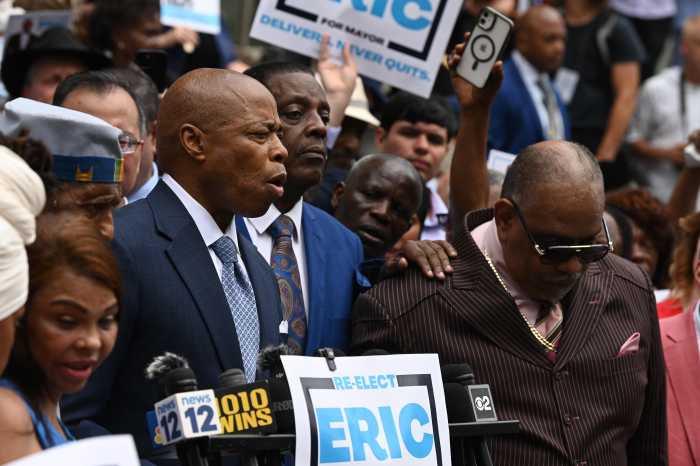1990 federal law increasingly unavailable for AIDS discrimination cases
A federal district judge dismissed a workplace discrimination claim brought by an HIV-positive man on the ground that the man’s HIV infection did not meet the statutory definition for disability because he had no interest in having children. This is the latest of several recent rulings suggesting that the federal American With Disabilities Act (ADA) is unlikely to provide much protection against workplace bias to HIV-positive gay men who are staying healthy through medical treatment.
The January 4 decision was based on the peculiar definition of “disability” contained in the federal statute. The ADA defines an individual with a disability as somebody having “a physical or mental impairment that substantially limits one or more of the major life activities of such individual.”
In this case, the individual is Robert Worster, discharged from a position as a party planner by Carlson Wagon Lit Travel, Inc., in 2000. Worster was suffering from Lyme Disease when he was diagnosed as HIV-positive that March. As a result of complications from Lyme Disease, he requested and received a temporary leave from work. Although employees on leave for medical reasons were expected not to work at other jobs, Worster had taken on one shift a week at a restaurant, which his boss was willing to tolerate so long as it did not interfere with his work performance at the travel agency.
A few months after learning of his HIV diagnosis, Carlson submitted a request for full leave under the Family and Medical Leave Act (FMLA), claiming that he was incapacitated due to “extreme fatigue” and asking for his leave to extend until September 18, 2000. The company granted his request for leave from May 12 to July 6, with permission to submit a subsequent extension request.
As part of his leave request, Worster signed an application agreeing that he would “not engage in gainful employment” during FMLA leave, at the risk of termination. Nonetheless, once on leave, Worster went to Provincetown on Cape Cod and began working at another restaurant, a fact that the company learned about via an anonymous fax. A Carlson human resources officer called the restaurant to confirm that Worster was employed there, and he was terminated.
Worster claimed discrimination and retaliation under the ADA, but the threshold issue was whether he was an individual with a disability under the statute. Now, a federal judge has ruled that he was not.
“Mr. Worster contends that HIV positive status constitutes a physical impairment which substantially limited the major life activities of reproduction and sexual activity,” Judge Ellen Bree Burns wrote. “First, HIV positive status does not qualify as a matter of law as a per se disability in this Circuit.”
After noting a 1999 Supreme Court decision, interpreting the statute to require an “individualized inquiry” about the plaintiff’s status, she commented, “it is not enough for a plaintiff to show simply that he or she has a certain disease which may potentially or hypothetically be disabling. Instead, a plaintiff must show that his or her impairment, in fact, substantially limits a major life activity.”
Burns found that Worster could not credibly allege that his HIV infection substantially limited the major life activity of reproduction, because he testified in a deposition that he had no plans to have children.
“Similarly,” she wrote, “plaintiff has testified that his impairment has not affected his sexual activity. To the extent that a jury could infer from his assertions that his HIV-positive status restricted his ability to engage in unprotected sex, no reasonable jury could find from the evidence that this restriction rose to the level of a substantial restriction. Nor has plaintiff shown that his impairment affects any other major life activity.”
Worster also claimed a violation of the Connecticut Fair Employment Practices Act, which has a different definition of disability: “chronic physical handicap, infirmity or impairment.” But Burns decided she didn’t need to determine whether Worster’s HIV infection would qualify him for protection under this definition, because the employer’s legitimate reason for discharging him would trump this claim.
The court never mentions Worster’s sexual orientation, merely identifying him as an HIV-positive man who had no interest in having children who moved to Provincetown.
Advocates who pushed for passage of the ADA in 1990 considered it a viable protection against workplace discrimination for people with HIV. However, recent court rulings suggest that due to the changing nature of the epidemic, with the development of medications that make it possible for HIV-positive people to stay healthy enough to work, and, as importantly, the Supreme Court’s strict interpretation of the law and the effect of that on the lower courts, the ADA’s initial intention has been thwarted.
MCC’s Rev. Pat Bumgardner marries four couples in protest of Bloomberg legal appeal
gaycitynews.com


































